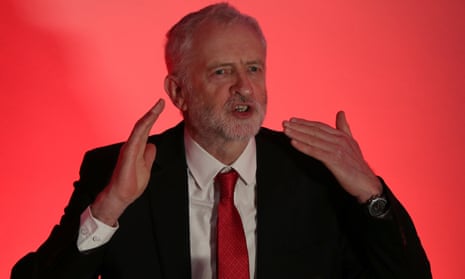Remember “Agent Cob”? A few weeks ago, the rightwing press frothed with excitement about the revelation that Jeremy Corbyn had meetings with a Czech agent during the cold war. This spy tale appeared to leave most of the public neither shaken nor stirred. The affair was neatly ridiculed by Private Eye when the magazine chortled that the Labour leader was “the spy who came in from the allotment”. That business ended up being more damaging to his critics than to Mr Corbyn. They looked more hysterical than he did sinister.
Things are not turning out so positively for the Labour leader after his self-revealing responses to the attempted assassination of Sergei Skripal, a Russian double agent. This is not a cobwebbed file from the cold war archive. This is the real-time case of a conspiracy to murder on British soil using a military-grade nerve agent, which poisoned the target, his daughter and a policeman. If it was not an act of war, it was certainly a warlike act. Mr Corbyn is no longer a backbencher on the margins of his party. He is the leader of Her Majesty’s opposition. The positions that he takes matter, here and abroad. They matter a lot.
Three of Britain’s closest allies – the US, France and Germany – agree with the British government that the assassination attempt represents an “assault on UK sovereignty” and that there is “no plausible alternative explanation” to Russian involvement. If you say we should be a bit wary of taking such statements wholly at face value, I agree. So I also listen to the experts in chemical weapons and Russian politics who also put Moscow in the frame. For my money, one of the big convincers has been the Kremlin’s behaviour. Vladimir Putin’s government has not sounded affronted by this grave charge; it has responded with sneers and taunting. Russian state television, a mouthpiece for the Kremlin, mockingly warns anyone who is “a traitor to the motherland” not to go to England because “in recent years there have been too many strange incidents with a harsh outcome. People get hanged, poisoned, they die in helicopter crashes and fall out of windows in industrial quantities.” Moscow formally denies having a hand in attempted murder while simultaneously gloating about deaths on British soil. This is mighty strange behaviour if the Putin regime is as innocent as the Siberian snow. The Skripal case fits with an established tradition of using killings by exotic methods to issue fear-instilling messages. The statement is: we did it and we want you to know we did it because we are too ruthless and powerful to be touched.
In his first parliamentary performance, and in subsequent interventions, Mr Corbyn refused to blame the Putin regime while raising a spray of questions that undermine the case for coordinated western action. Was it really the Kremlin? Can the government prove that? Or was it rogue actors within the Russian state? Why has Mrs May not sent a sample of the chemical weapon for analysis in Russia? Can we trust what British intelligence is saying when people were misled in the run up to the Iraq war? Some of these questions might seem reasonable, but collectively, they make him sound like a man searching for any possible reason not to assign responsibility to the Kremlin. Writing in the Guardian, the Labour leader argued that we should not “resign ourselves to a new cold war”, a statement apparently oblivious to the fact that the Putin regime is already engaged in a broad spectrum struggle with democracies. At other times, Mr Corbyn’s position has been just contradictory, as he has tried to bridge the gap between his reflexive reluctance to blame Moscow with the demands of his horrified parliamentary colleagues for a robust stance. So he has ended up saying that Britain should not “rush” into retaliatory action while at the same time endorsing Mrs May’s expulsion of 23 Russian diplomats identified as intelligence officials.
His position has triggered anger among Labour MPs, and that is not just confined to those who have always loathed his leadership. Even allies in the shadow cabinet have disowned him. The turbulent two and a half years since he became leader have been marked by repeated resignations from the senior team, with the result that everyone within the parliamentary Labour party who is willing and able to serve on its frontbench has sat there. So those now occupying seats in the shadow cabinet are either hardcore loyalists or non-Corbynites who have a high threshold of tolerance. These are not people who will break with him lightly. Emily Thornberry is Mr Corbyn’s constituency neighbour in Islington. When his cheerleaders line up, Ms Thornberry usually waves the biggest pom-pom. So it was notable when the shadow foreign secretary contradicted him by agreeing that there was “prime facie” evidence that the assassination attempt originated in Moscow and lambasted the Russians for not even attempting to provide “any credible, alternative explanation”. The shadow defence secretary, Nia Griffith, was even blunter when she said what her leader will not: “Russia is responsible for this attack.”
To understand Mr Corbyn’s prevarications, we need to remember his past. The formative experience of his young adulthood was the Vietnam war and this animated an enduring hostility to the west in general and America in particular. He has spent his life campaigning against Nato. As a young man, his idea of a romantic trip abroad was to take Diane Abbott on a motorbike tour of East Germany when it was a Soviet colony. He and his segment of the left romanticised Fidel Castro’s dictatorship in a way they would never have done had Cuba been a one-party state aligned with Washington rather than a one-party state allied with Moscow.
This visceral anti-western sentiment outlasted the demise of the Soviet Union. Russia ceased to be a communist state nearly three decades ago and is now better categorised as gangster capitalist. Yet the old muscle memory of wanting to defend Russia against the west still kicks in at defining moments. Mr Corbyn was a founder and chairman of Stop the War, an organisation that is rather selective about the conflicts it thinks worthy of protest. It was hotly opposed to the western military interventions in Afghanistan, Iraq and Libya, conflicts that were ritually deplored in Mr Corbyn’s piece for the Guardian. Stop the War has been less energetic about organising demonstrations outside the Syrian and Russian embassies to oppose the atrocities perpetrated by the Assad regime and its sponsors in the Kremlin. The contemporary horrors of Syria didn’t merit a single mention in Mr Corbyn’s piece.
The positions taken by the Labour leader have consequences. “Divide and rule” is one of the key ambitions of a Putin foreign policy that aims to destabilise the democracies by fostering divisions within them and by setting one democracy against another. Any evidence of a confused response from Britain and its allies will be greeted with great delight in the Kremlin.
The muddle in Labour’s position hobbles the opposition from attacking the failings of Theresa May’s government in relation to the Putin regime. For a long time now, British ministers have been complaining about the Kremlin’s adventurism on Russia’s borders, cyber-attacks on democracies, the testing for vulnerabilities in energy grids, data networks and other critical infrastructure, and meddling in elections. At the same time, dirty Russian money has been allowed to wash through London. I have heard members of the current cabinet talk privately in alarming terms about threats posed by the Putin regime. The self-same ministers have then turned up in black tie for Tory fundraisers populated with Russian oligarchs. The wife of a former Putin minister is still owed a tennis match with Boris Johnson and David Cameron, having made a winning bid of £160,000 for that privilege at a Tory event. There are extremely good points to make about the Russian money sloshing around at the top of British society, and the Tory party’s repeated failure to take the necessary steps to clean this up; points that the Labour party would make much more powerfully if its leadership wasn’t cross-eyed about the Kremlin.
Jeremy Corbyn is his party’s candidate to be prime minister. One reason Labour did not win the last contest was because a crucial segment of the electorate, among them many traditional Labour supporters, did not trust him to keep Britain safe. To put it at its mildest, those voters won’t be feeling any more confident now.

